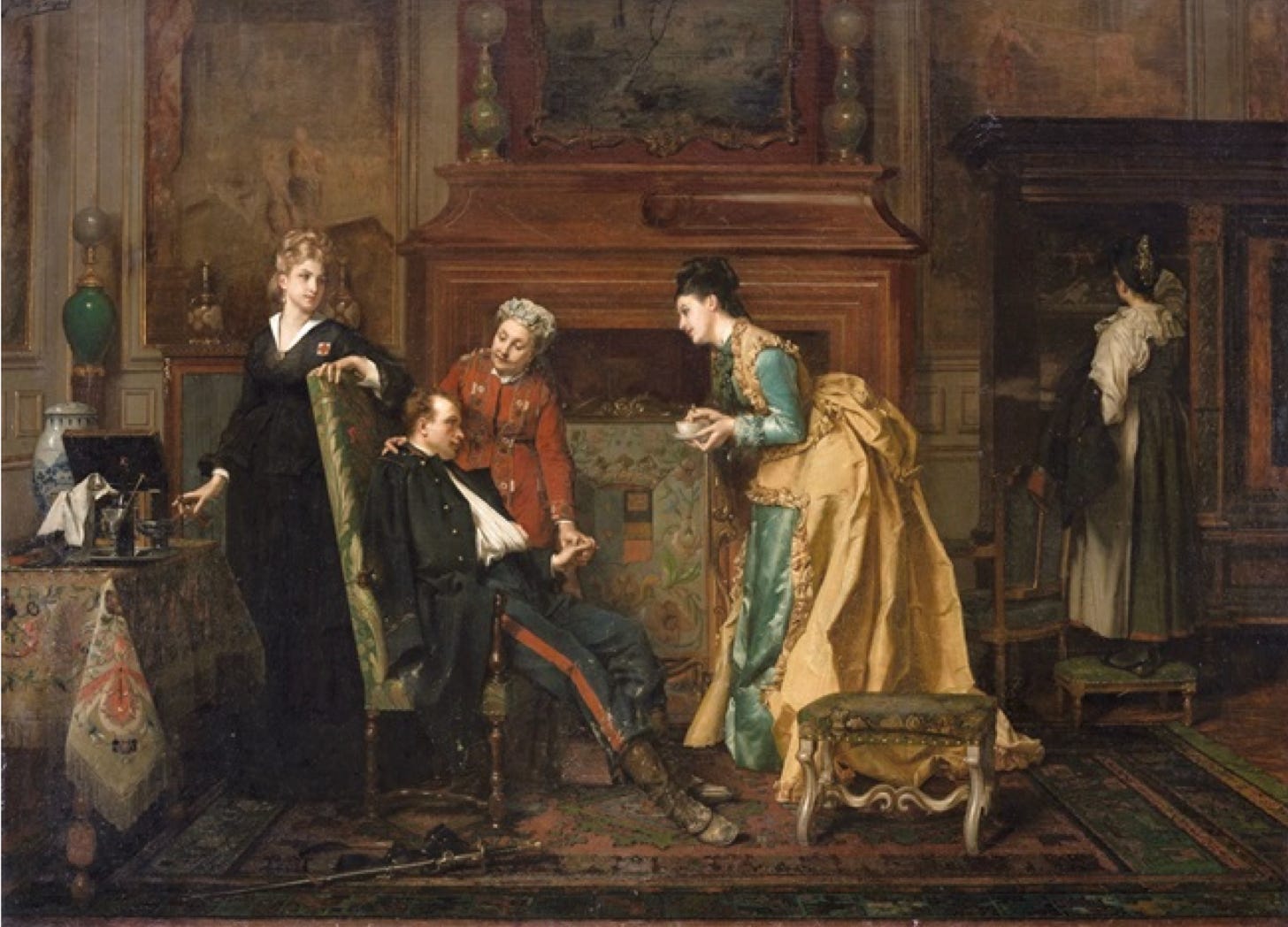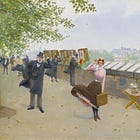Extra Muros continues the serialization of Pardon My French, a light-hearted look at some of the French expressions that sometimes pop up in the speech of nous, les Anglo-Saxons.
A Roman matron of modest means kindled, for the sake of cooking, heating, and light, a fire that she called a focus. Over the course of the thousand years that followed, as amo, amas, amat gave way to ooh la la, and focus evolved into foyer, the descendants of our pyrogenic heroine came to use the word to describe the place set aside for the comforting blaze.
At first, the location described by foyer partook of a purely local character. That is, it described the hearth that held the combusting combustibles (or, if you will, the locus of the focus). After a while, however, foyer acquired the second meaning of ‘room where the hearth was located’ (and thus, at least to Latin lovers, the locus of the locus of the focus.)
Most folks, for whom the kitchen served as a place to eat, meet, and greet, applied foyer to that homely space. For those, however, who had more than a few francs to rub together, foyer came to mean ‘living room’. In imitation of these customs, playhouses of the better sort provided their actors with a foyer of their own, thereby allowing those temporarily out of the (still literal) limelight to enjoy a bit of warmth.
In the age of the steel and steam, foyer molted again. Thus, in addition to describing the coziest room in a house, and the appliance that kept the chill at bay, it became a synonym for the home as a whole. This led to such expressions as le retour au foyer (‘the homecoming’) and les anges du foyer (‘the angels of the home’).
While this grand expansion was taking place, ‘foyer’ found work in the English-speaking world. At first, the owners of grand theaters and fancy hotels applied it to the those parts of their lobbies that were well provided with comfy chairs. Before long, however, ambitious architects began to apply to word to analogous spaces in the dwellings of the well-to-do. (The more modest of these featured little more than an umbrella stand and a framed cartoon from the New Yorker magazine. Grander ‘foyers’, however, could accommodate several detectives from the homicide squad.)
In many corners of the Anglosphere, ‘foyer’ has retained its original pronunciation. Thus, Britons change out of their Wellingtons, and Canadians doff their mukluks, in a room they call the ‘foy-ay’. Americans, however, have completed the domestication of the word. Thus, except on the rare occasions when we attempt irony (e.g. ‘I decorated the foyer of my doublewide with Dukes of Hazard memorabilia’), we make ‘foyer’ rhyme with ‘lawyer’.
For more in the way of Gallic mirth:
To Share, Subscribe, or Support:







...and we no longer build houses with a hearth as the center of the home. Since about the 1980s, houses in America have been built mostly without hearths. It's a significant change and has gone almost unnoticed. Think of it...since before the end of the last Ice Age, the fire was the center of the home. Now it's gone...
...and we wonder why things have gone awry.
I love this series.